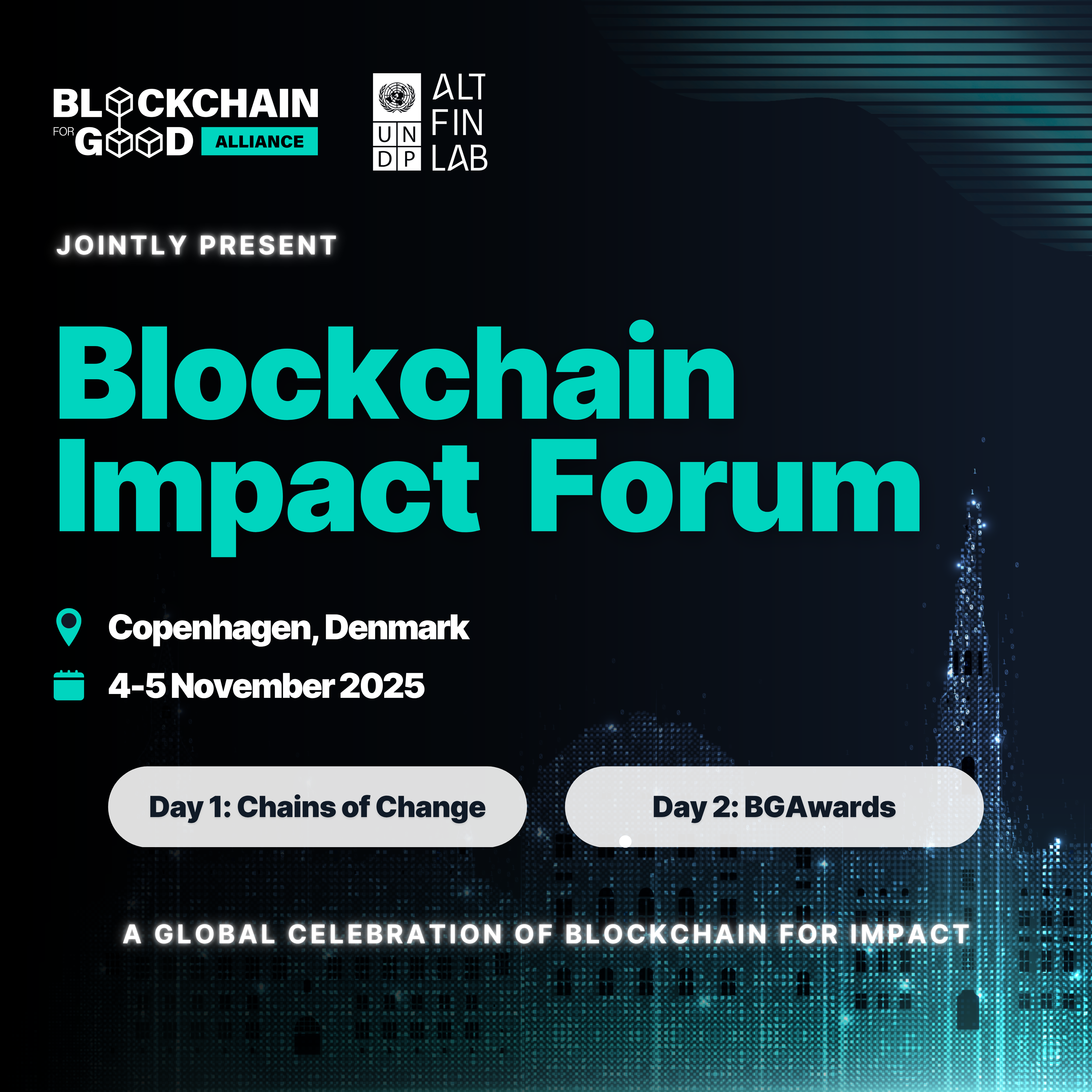In a time of rapid technological advancement, the question is no longer whether emerging technologies like blockchain have a role to play, but how they can be harnessed responsibly and inclusively at scale. The SDG Blockchain Accelerator, strategically led by UNDP’s Alternative Finance Lab (AltFinLab) with a coalition of leading blockchain partners, is beginning to answer that question.
Its latest initiative – a global, two-week hackathon pairing United Nations development experts with frontier technology innovators – has produced a new cohort of promising pilot projects and valuable lessons about overcoming the divide between development needs and digital innovation.
A New Model for Co-Creation
Matched teams worked to understand context and feasibility from day one of the Hackathon. From 25 August to 8 September 2025, 50 paired teams collaborated across four partner tracks to map stakeholders, validate use cases and craft implementation roadmaps they could carry forward after Demo Day. The emphasis was simple and powerful: connect the people closest to the problem with the builders who can help solve it – then pressure‑test the idea until it fits the terrain.
Over the eleven intensive days, the first explored option wasn’t “blockchain by default” but “blockchain where it adds value”! Where it did, the sprint produced practical, broader-stack designs that leverage decentralization for trust, traceability and programmable flows across climate integrity, inclusive finance, public sector transparency, circular economy and many more. A few examples stood out:
- Climate finance and carbon markets: In Sierra Leone, NovaChat and UNDP Sierra Leone are developing a national carbon credit registry to unlock transparent climate finance, while TradeChainX and UNDP Ethiopia are creating a tokenized carbon marketplace that ensures the integrity and traceability of carbon credits. In India, NovaChat is partnering with UNDP India to connect smallholder rice farmers directly to global carbon markets.
- Public sector transparency and governance: In Malawi, xCapit and UNDP Malawi are building a blockchain-powered partner portal and SMS-enabled wallet that makes public spending traceable and inclusive, even in low-connectivity settings. Meanwhile, SALA and UNDP Bosnia and Herzegovina are combating diploma fraud and streamlining hiring with a blockchain-based credential verification platform aligned with EU standards.
- Humanitarian aid and financial inclusion: In South Sudan, CoalaPay and UNDP South Sudan are piloting a last-mile aid disbursement tool that enables secure, mixed-mode payments – even offline – to reach remote populations faster and more transparently. In Lebanon, Storspay is partnering with UNDP Lebanon to create a stablecoin-powered remittance platform, while in Afghanistan, Decaf and UNDP Afghanistan are designing a blockchain payment corridor to cut costs and delays for SMEs.
- Circular economy and social inclusion: In India, Plastiks and UNDP India are digitizing the waste value chain, accrediting informal waste pickers and linking them to certified recovery data – while in El Salvador, the same solution is being deployed with UNDP El Salvador to support future Extended Producer Responsibility legislation.
- Nature conservation and biodiversity: In Rwanda, Cambridge University and UNDP Rwanda are developing a blockchain-based NFT series linked to mountain gorilla conservation, creating a transparent, traceable funding stream for biodiversity protection. The project is complemented by a gamified education platform and offline VR experiences to engage communities and global audiences alike.
These designs are built around actual constraints, end‑users and regulators – what it takes to make a pilot work in the real world.
Lessons for the Future
Beyond the technical outcomes, the hackathon has surfaced critical lessons for how the development sector can work with emerging technologies:
- Early alignment matters: Pre‑introduction meetings between UNDP teams and solution providers produced better matches and faster progress once the sprint began.
- Co-creation is king: When problem‑holders and builders interrogate the use case together, solutions are more relevant, feasible, and regulation‑ready.
- Continuous support is key: Transitioning from a good roadmap to a functioning pilot needs sustained mentorship, technical support and peer learning – a gap the Accelerator is working to close.
Perhaps most importantly, the process has shown that responsible blockchain innovation has the potential to transform how aid is delivered, how public services are managed, and how communities participate in economic systems.
Building the Next Generation of SDG Solutions
With Demo Day behind them, selected teams transition into Cohort 2 to refine and deploy pilots, backed by tailored guidance and visibility across UNDP and partner networks. The Accelerator also unlocks multiple post-accelerator funding opportunities; with pilots launching across Africa, Asia, Latin America, and beyond, the coming months will put these solutions to the real-world test.
The Accelerator is organized in partnership with the Blockchain for Good Alliance, EMURGO Labs, FLock.io, Stellar Development Foundation and Sui Foundation. It is made possible through catalytic funding from the Cardano treasury, through Project Catalyst, and alongside contributions from other partners.




